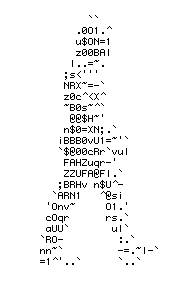Blogging as Pedagogic Practice Across the Curriculum
Blogging by teachers and students is something I have been thinking about more the past month. Today I am doing a presentation at nearby Bloomfield College's Annual Faculty Technology Showcase entitled "Blogging as Pedagogic Practice Across the Curriculum."
Most discussion and research on blogs and teaching and learning in higher education focuses on them as another technological tool. In this session, I'm looking at blogging primarily as a way to address traditional writing practices. take a look at Blogging As Pedagogic Practice Across the Curriculum.
Using college-wide blogging tools or free blogging services, instructors are addressing e-portfolios, audience, publishing, copyright and plagiarism, authentic writing, and writing in a digital age in varied disciplines.
Here are 2 quotes that I will use in my introduction.
"If print culture shaped the environment in which the Enlightenment blossomed and set the scene for the Industrial Revolution, participatory media might similarly shape the cognitive and social environments in which twenty-first century life will take place (a shift in the way our culture operates). For this reason, participatory media literacy is not another subject to be shoehorned into the curriculum as job training for knowledge workers." - Howard Rheingold, Participative Pedagogy for a Literacy of Literacies
"Those of us striving to integrate participatory media literacy practices into our classes often face resistance. Other faculty might argue that we are turning away from the foundations of print literacy, or worse, pandering to our tech-obsessed students. Meanwhile, students might resist too, wondering why they have to learn to use a wiki in an anthropology class. The surprising-to-most-people-fact is that students would prefer less technology in the classroom - especially participatory technologies that force them to do something other than sit back and memorize material for a regurgitation exercise. We use social media in the classroom not because our students use it, but because we are afraid that social media might be using them - that they are using social media blindly, without recognition of the new challenges and opportunities they might create. - Michael Wesch, Participatory Media Literacy: Why it matters
Teachers are using college-wide blogging tools or free blogging services for different disciplines as a way to address e-portfolios, audience, publishing practices, copyright and plagiarism, authentic writing and writing in a digital age with hypertext.
It was only a few years ago that when I did a presentation on blogging I would have to explain that blog = Web + Log. In the early days, most blogs were in the personal “diary” genre, so educators did not take them very seriously. I think there are more public forum style blogs on a particular topic (politics, hobbies, disciplines...). And there are definitely more corporate and commercial blogs out there. The pros are taking over. Take a look at Technorati's top blogs and it is completely dominated by pros.

I saw this matrix back in 2003 on a blog post by Scott Leslie and it first set me thinking about blogs in education. He wrote: "To help facilitate this discussion and my own thinking on it, I’ve worked up this matrix of some of the possible uses of blogs in education. A big caveat here - this matrix very much approaches the topic in the context of ‘formal’ education, and only really considers students, instructors and ‘the rest of the net’ as actors. Obviously one could add much to this - librarians, institutional RSS feeds … That’s why I titled it ‘Some’ uses of blogs in education. Even just considering this limited set of actors, I have definitely left much off."
I'll be curious how many in my audience are bloggers or blog readers. [Post-Presentation Update: Everyone had read a blog at least once. Two people write regularly on a blog. No one used a blog reader.] In the 2006 survey by the Pew Internet and American Life Project, 39% of Internet users (57 million American adults) said they read blogs which was an increase of 27% from 2004. Then a study by Universal McCann (March 2008) determined that there are 184 million blogs worldwide and 26.4 million are in the United States. There are 346 million readers worldwide with 60.3 million being Americans and 77% of active Internet users reported that they read blogs.
So what do blogs offer teachers and students?
- online discussion through time-stamped comments
- a video and podcasting platform
- posting via email & cell phone
- free web space for class materials, portfolios, projects
- minimal web design skills required
What types of blogs are being created?
- Journalism (politics) & convergence journalism (NY Times)
- Promotional tool – corporate, product blogs
- Community of interest – poets, software (non-corporate)
- Personal writing
- Media delivery– Vlog (Video), Photolog, linklog, sketchlog (artist portfolio), podcasting
Where are blogs headed?
I think it's unfortunate for educators that Tumblelogs (like tumblr.com), microblogging (short posts using Twitter) and Moblogs (via mobile phones) are coming on strong. Some observers claim that students are writing more than ever (though the writing is not what we would call "academic") and others feel this is not a trend that will encourage more writing by our students.
A good topic to discus with student bloggers is the conventions of the blogosphere.
- the need for regular posting
- using hyperlinks to additional materials & sources
- referencing other blogs via links
- the blogger writing style (Is it all less formal?)
- allowing/encouraging comments, interaction and the sharing of contentNG STARTED
For blog hosting, I use and have my students use the free blogger.com (from Google) but others use livejournal.com, wordpress.com. A education specialty is edublogs.org where you can create your own ad-free fully featured WordPress blog including free assessment tool from the Chalkface Project and an ad-free wikispace.
Your students might be familiar with sites such as MySpace.com, Vox.com which offer blogging, but I stay away from them for coursework. I also don't use any of the paid services such as typepad.com. All these sites offer free templates for blog designs and you can customize if you know something about HTML & CSS.
Some early lessons you might approach with students:
- Your blog should have a basic “mission statement” or “about” that shows the intent of the blog
- Who is your audience? think about both an ideal reader & your emerging audience needs
- Developing a voice
- Conventions, formality
- Citation, copyright
Blog writers need to be blog readers, so it's worth saying something about subscribing to blogs using RSS and services that aggregate your subscriptions in one place. Bloglines.com or Google Reader will allow you to pull blog posts that you have subscribed to and show you unread entries all in one place. You can browse their directories in different categories and see what is popular. All it takes to add a site is a click.
As examples of some student blogs, I can point you to a few of my students from last semester who were using blogs as a type of supplement to their design portfolio with the posts being reflections on course modules, and they were using their blogs as a tool for web design.
http://globonautenglish.blogspot.com/
http://walkmethru.blogspot.com/
http://quirkitecture.blogspot.com/
Another class blogging project that I can reference is one that I saw at a conference. It was called "Blogging for Dollars" and was done by Jonathan Goodman, a business professor at Fairleigh Dickinson University. He had students do blogs as a way of examining firsthand the growth of online advertising dollars. His students built individual blogs, chose subjects from horticulture to who is hotter, installed Google's AdSense advertising application and analytics program and trying to earn some ad dollars! Then, they analyzed who visited, when, and how they spent their time on the blog. It's not really a writing activity as much as a business lesson, but perhaps they learned that well-written posts drive traffic.
Some Colleges Blogging As Marketing using students as bloggers
http://mylife.udayton.edu
www.clarkson.edu/clarkson_experience/blogs
Ball State University http://www.bsu.edu/reallife
St. Thomas (Minnesota) www.stthomas.edu/admis/undergraduate/blogs/
University of Vermont Admissons http://adms.blog.uvm.edu
University of Sydney http://blogs.usyd.edu.au/sydneylife/
http://archinect.com collects blogs by architecture students at schools all over the world.
I like having students look at Corporate Blogging too to get a sense of what "pros" are doing with blogs. Google has a number of blogs http://googleblog.blogspot.com/ and Sun Microsystem's offers blogs to "any Sun employee to write about anything" http://blogs.sun.com. Like other tech companies, Microsoft has several public product blogs, like this one for its Internet Explorer browser http://blogs.msdn.com/ie/
It's also interesting to see the "convergence journalism" happening at "old media" sites like the New York Times which has a number of bloggers. http://www.nytimes.com/ref/topnews/blog-index.html Back in the early days of blogging (5 years ago), many of those Times blogs would have carried versions of print materials, but most print publications have significant amounts of original material running on blogs as "web exclusives."
Finally, I would point students to some media blogs that use video, images, or audio either exclusively or as the major content of the blog. Ian Shive is a nature photographer who has a photoblog that supplements his website and is a great marketing tool. There are lots of photo blogs at Reuters too.
I'll end with a funny and clever blog that I've been reading for a few years called INDEXED that is a daily index card with a hand drawn chart, graph, diagram. This is one hat started as a little Blogger project and became a book.
FURTHER
Learning through Blogging: Graduate Student Experiences By Robert Davison, City University of Hong Kong
One last Call For Paper Proposals for my NJCEA panel on teachers blogging. Details and contact info


 Reader - what writer doesn't read others in the field?
Reader - what writer doesn't read others in the field?